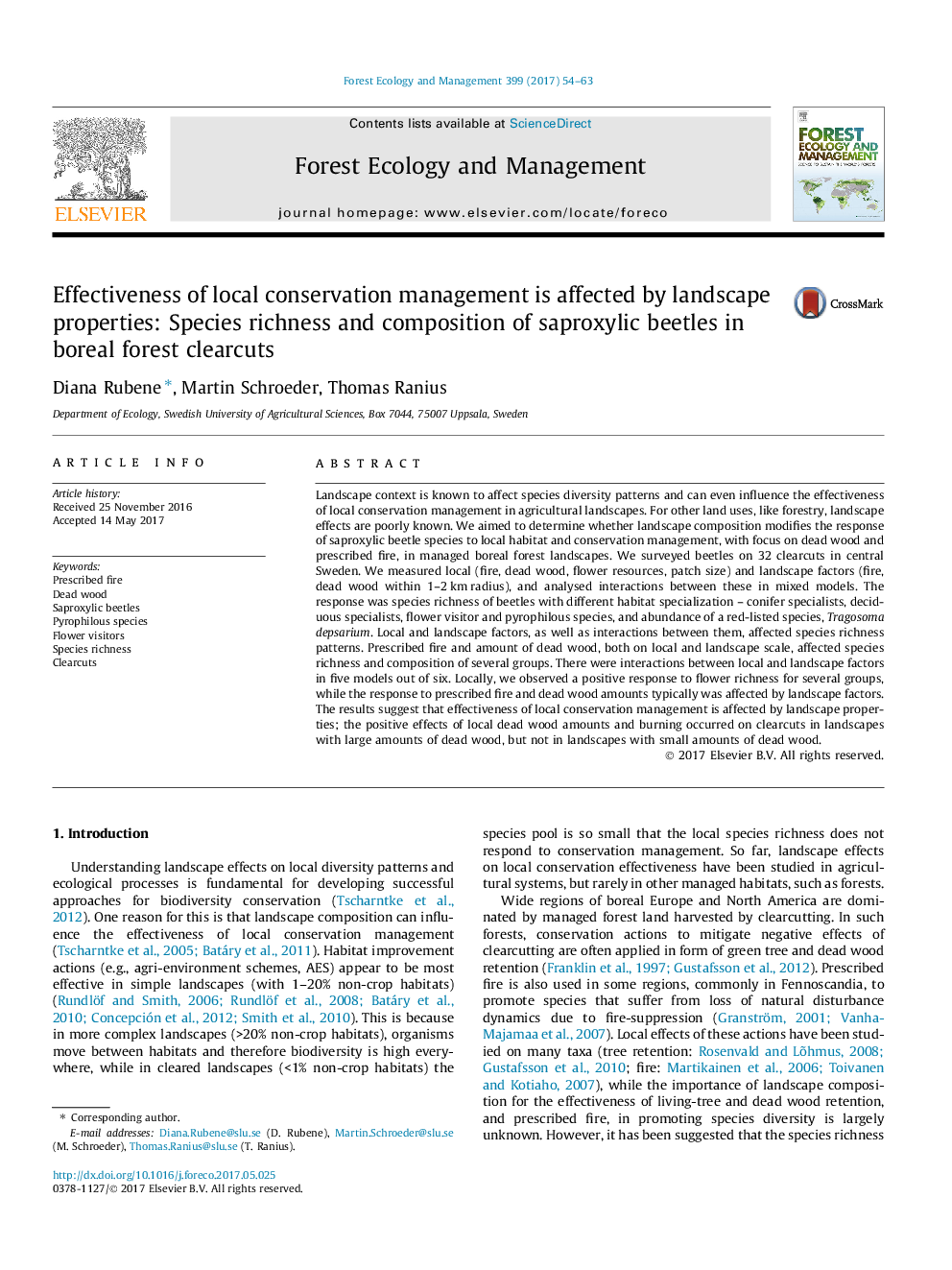| Article ID | Journal | Published Year | Pages | File Type |
|---|---|---|---|---|
| 4759367 | Forest Ecology and Management | 2017 | 10 Pages |
Abstract
Landscape context is known to affect species diversity patterns and can even influence the effectiveness of local conservation management in agricultural landscapes. For other land uses, like forestry, landscape effects are poorly known. We aimed to determine whether landscape composition modifies the response of saproxylic beetle species to local habitat and conservation management, with focus on dead wood and prescribed fire, in managed boreal forest landscapes. We surveyed beetles on 32 clearcuts in central Sweden. We measured local (fire, dead wood, flower resources, patch size) and landscape factors (fire, dead wood within 1-2 km radius), and analysed interactions between these in mixed models. The response was species richness of beetles with different habitat specialization - conifer specialists, deciduous specialists, flower visitor and pyrophilous species, and abundance of a red-listed species, Tragosoma depsarium. Local and landscape factors, as well as interactions between them, affected species richness patterns. Prescribed fire and amount of dead wood, both on local and landscape scale, affected species richness and composition of several groups. There were interactions between local and landscape factors in five models out of six. Locally, we observed a positive response to flower richness for several groups, while the response to prescribed fire and dead wood amounts typically was affected by landscape factors. The results suggest that effectiveness of local conservation management is affected by landscape properties; the positive effects of local dead wood amounts and burning occurred on clearcuts in landscapes with large amounts of dead wood, but not in landscapes with small amounts of dead wood.
Related Topics
Life Sciences
Agricultural and Biological Sciences
Ecology, Evolution, Behavior and Systematics
Authors
Diana Rubene, Martin Schroeder, Thomas Ranius,
